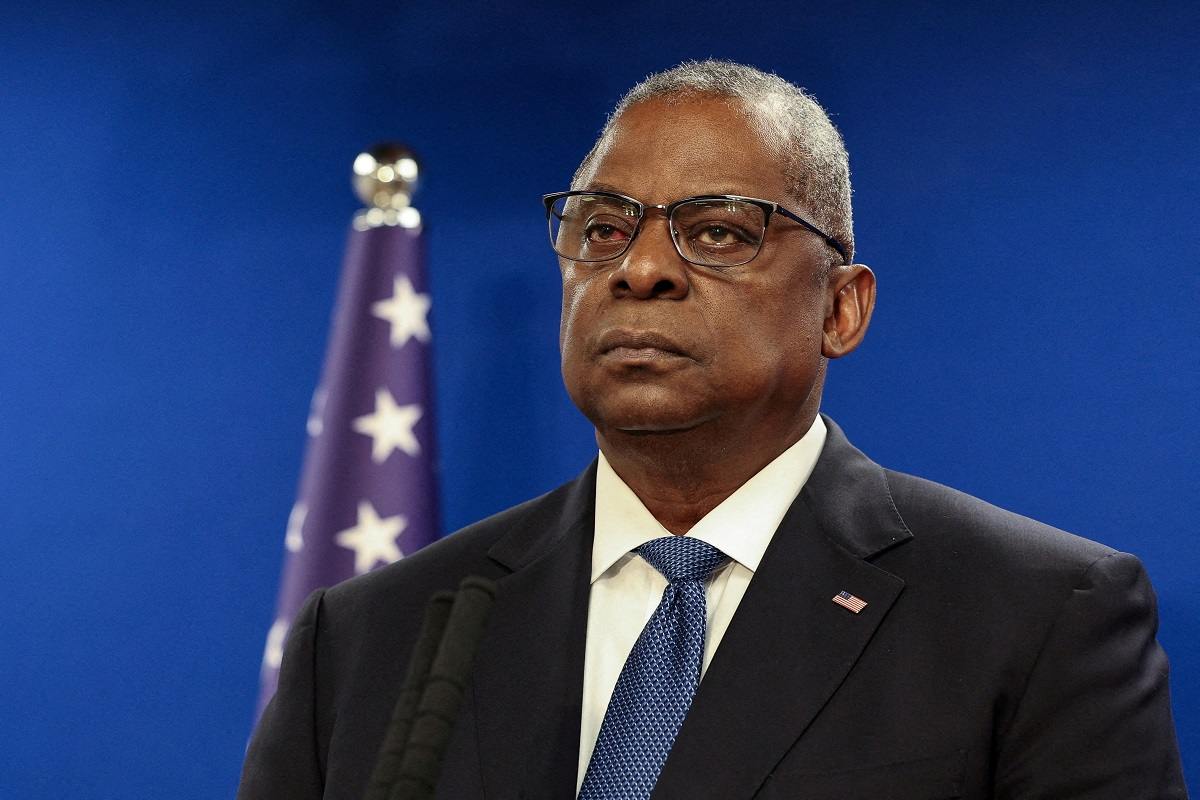Defense Secretary Lloyd Austin's Hospitalization Raises Concerns And Questions
Defense Secretary Lloyd Austin's hospitalization raises concerns and questions surrounding the lack of transparency, as President Joe Biden was reportedly unaware for several days that he had been hospitalized.
Author:Rhyley CarneyReviewer:Paula M. GrahamJan 07, 20243.4K Shares58.2K Views

Defense Secretary Lloyd Austin's hospitalization raises concerns and questionssurrounding the lack of transparency, as President Joe Biden was reportedly unaware for several days that he had been hospitalized.
The situation unfolded when National Security Adviser Jake Sullivan informed Biden late Thursday afternoon about Austin's hospitalization due to complications from an elective surgery on New Year's Day.
Delayed Notification And Austin's Statement
The Pentagon officially announced Austin's hospitalization on Friday, five days after his admission.
In his first statement on Saturday, Austin acknowledged that he could have done a "better job" of notifying the public and committed to improved transparency. However, he provided no details about his condition or the reason for his hospitalization.
It was revealed that Austin had participated in a call with President Biden on New Year's Day to discuss national security matters, including the escalating situation in the Red Sea.
The fact that Austin engaged in sensitive discussions with the President while hospitalized without the White House's knowledge for days highlighted the extraordinary circumstances.
Congressional Reaction And Lack Of Transparency
GOP Sen. Roger Wicker, the highest-ranking Republican on the Senate Armed Services Committee, deemed the chain of events "unacceptable." Questions were raised about the notification process and whether Austin followed the U.S. code for reporting vacancies in an office.
“„Worryingly, we now have more questions than answers. Why was the notification process under 5 U.S.C. 3349 not followed and who made the determination not to follow it?- GOP Sen. Roger Wicker
“„What role did the Secretary of Defense’s staff play? When exactly was the President notified? What justification did the Department have for withholding information from the National Security Council? To what extent was the Secretary incapacitated by his surgery?- GOP Sen. Roger Wicker
“„The very fact that we have none of this information is an indictment of an administration which consistently holds Congressional authority on national defense matters in contempt.- GOP Sen. Roger Wicker
The lack of information about Austin's health, especially during a period of heightened national security concerns, drew criticism.
Despite the delayed notification and concerns raised, Austin has since reassumed his full duties, with President Biden expressing complete confidence in him during a warm conversation. The White House official stated that the president looks forward to Austin's return to the Pentagon.
The congressional oversight committees were reportedly not notified of Austin's hospitalization until Friday night.
Media organizations, represented by the Pentagon Press Association, protested the delayed public disclosure, calling it an outrage, especially given the ongoing national security challenges.
Comparison To Previous Transparency
The delayed notification about Austin's hospitalization contrasts with previous instances of transparent communication about the health of top officials.
The PPA noted the importance of informing the public about the health status and decision-making ability of the top defense leader, particularly during critical geopolitical situations.
As Austin remains hospitalized, concerns linger about the impact on national security decision-making, especially amid challenges such as Iranian-backed attacks in the Middle East, maritime security in the Red Sea, and ongoing efforts to support Ukraine in its conflict.
Final Words
Secretary of Defense Lloyd Austin's hospitalization has raised serious questions about transparency and communication within the highest levels of the U.S. government, prompting concerns about the handling of critical national security matters during a period of geopolitical tension.
The delayed notification to President Biden, coupled with the lack of details about Austin's condition, has raised eyebrows among congressional leaders, the media, and the public.
As Austin resumes his duties amid ongoing national security challenges, the episode highlights the need for improved communication protocols in handling critical matters at the highest levels of government.

Rhyley Carney
Author

Paula M. Graham
Reviewer
Latest Articles
Popular Articles